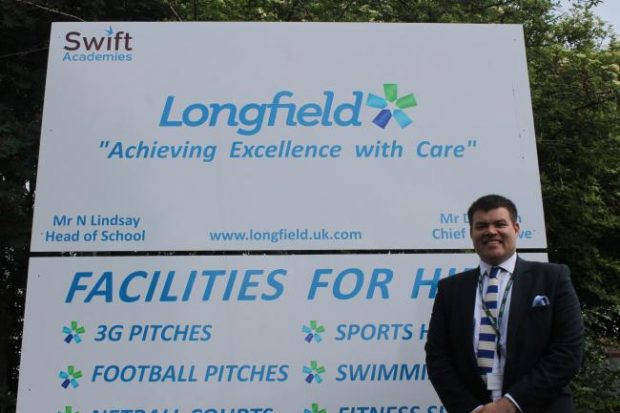
As Head of School at Longfield Academy in Darlington I am passionate about ensuring the school not only provides a first-class education for its pupils; but embraces the wider community role all schools should be playing in supporting the early help offer for families. Schools are uniquely placed to be able to identify issues early as they emerge for children and their families; and are often trusted more than other services which encourages an openness from families to ask for help.
In this blog I talk about how services need to work together in a joined up and coordinated way to ensure every child and their family has the chance to fulfil their potential.
The Playing Field
The uncomfortable truth is that children aren’t born with equality of opportunity. The exciting reality is that some of us may, in some small part, do something to redress the balance. If enough of us do, the difference could be significant. Belief can be much more important than intent.
When the modern welfare state was created, it was incrementally and effectively a series of beacons for hope. Effective public services attempt each day, with varying degrees of success, to turn this into tangible outcomes. We all have days where we see the light dimming and society appears to become more disparate before our eyes, and in many ways more desperate, we wonder if there is any way forward? There might be.
This is not an article from a school which is anywhere near thinking it has ‘cracked it.’ That’s the first lesson; society evolves and so does it’s issues. At Longfield we realise we always must seek to improve our support systems in order to evaluate impact, in order to successfully implement change and then to measure impact; to develop a purposeful action plan as each individual child, family, street and area is understood.
This then must dovetail into the systems of other services – the right hand must not only know what the left hand does, they should be holding hands and leading families to their positive destinations. Range and type of service offered needs to be as wide as budgets can afford. Remember, anything that assists is in essence a type of early help. Nothing should be ‘off the table.’
The disaffected teacher mantra ‘he is just like his Dad/Mam/brother/sister/Aunt/Uncle’, with complimentary sigh, is now transformed into a battle cry to the innovators; the think-tanks which operate within schools working out how to change the destiny of this young person so they can reach out to new horizons.
Let us also have a much-needed reality check here; public services need each other more than ever, not just for expertise but to help to cover the costs, as we all have to tighten our belts, just when we are most needed out there on the streets.
Hope is not enough
One of the more pleasing developments of the early part of this century, has been the terminal decline of the ‘it’s not our problem see them down the road’ mentality, which characterised the more unhelpful excesses of the reputation of public services in the past.
The concept of early help is the manifestation and formalising of how we all believe that a society should operate; namely that there should be support apparatus in place to allow every child to reach their potential by recognising the need for families to be supported. Just as families rarely operate in silos, in turn the services which look to support them should look to capitalise on each-others strengths to create a wide ranging umbrella of support, leading to holistic care, but more importantly increased potential for social meritocracy and equality.
In any given discipline, children will be born with potential. The destiny of any civilised society is written by how many of these children are able to fulfil this potential and how many of them are never recognised or fall by the wayside due to the inadequacies of the society they are seeking to serve. The more that are able to shine, the more developed and civilised the society grows. Provided that they show the necessary desire and fortitude, let us try and do something to make sure they can make it happen.
Magic fairy dust gets you nowhere, just as much as unfinished original intent. The desire to support is undisputed but is not enough. What is needed is a road map.
Parents fundamentally want their children to have better life experiences than their own.
There can be no better vehicle than the early help model, to try and achieve these outcomes. We owe it to each other as a society to work within this framework, and to improve it and refine it together.
Nicholas Lindsay
Head of School
Longfield Academy
Leave a comment